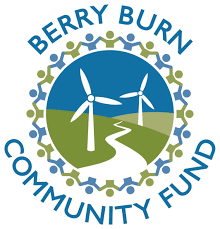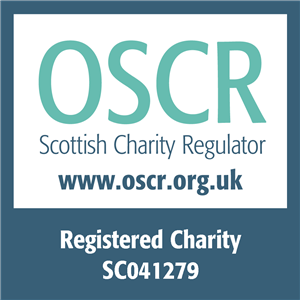
Carbon Action Group
A programme for smaller footprints
Do you want to reduce your carbon footprints?
The Carbon Action Programme starts in September 2025 with 10 participants. It consists of 6 meetings with 2 weeks between. Each meeting runs for 2 hours.
Sign up to with your name and telephone: [email protected]
Purpose of the programme
PET invites community members, with priority for residents in the Park, who want to explore how their individual and household carbon emissions can come down. The Carbon Action Group will be aligned with the efforts for the Ecovillage Findhorn community to reach net-zero. The Carbon Action group participants will hopefully spread their insights and solutions and inspire others. New groups will follow if the first is successful. At the same time other initiatives should take place to align Park organisations and businesses with the net-zero goal. The programme will also discuss the possibility that all efforts to save our planet from being too warm is in vain. The project will be based on the fundamental community principle of being part of nature, seeking higher guidance and using ourselves to change the world.
You don’t know what you don’t know
The basic idea behind the Carbon Action Group is that it is possible to change habits and practices that form our lives. Some habits have had a long time to get established and are usually not questioned. But we can change them if there are good reasons for it such as new knowledge. We can see with new eyes.
The participants will be encouraged to explore habits and decisions from a carbon perspective. That means learning what the carbon consequences are.
Between meetings participants will have time to try, test and reflect on new behaviour. The participants will also support each other through tips and learn from each other.
The task of the focaliser will be to create trust, willingness to share and willingness to experiment.
Participants will each have a Carbon Action Work-Book. It is a booklet based on the Carbon Bites published in Rainbow Bridge.
The participants will have access to a carbon calculator software. It will be used at the start to get a picture of present fossil fuel dependence. And at the end of the programme we will measure how the carbon fooprints will shrink as a result of new insights.
Focaliser is Margo van Greta, a dedicated long-time resident of The Park. Her passion lies in weaving spirituality into everyday life. She created “Heartbeat Findhorn, Inner Work for Outer Action,” where she embraces her role as a midwife of transformation. She also facilitates The Work That Reconnects, a process designed to help individuals nurture a regenerative world by turning feelings of despair and overwhelm into inspired action. https://www.heartbeatfindhorn.com/
Göran Wiklund, also a resident of the Park, is PET’s carbon expert. He will provide climate facts and carbon emission information. He has been working with climate issues for corporations in Sweden for 20 years. Göran has for several years done the carbon footprint report for the community and is the author of Carbon Bites.
PET has received funding from the Berry Burn Trust to run this pilot Carbon Action Group. Through the external funding there will be no participant fee. If successful PET would be interested in organising more such groups.
First come, first served. Findhorn Park residents have priority to attend.
Dates for meetings
20 September
4 October
18 October
8 November
22 November
6 December
Meetings go from 10:30 -12:30. All meetings will be in the CCC House.
Make a note in your diary!
Summary of content at the meetings:
Meeting 1
Getting to know each other. Meeting guidelines.
How we change and learn
Seeing with new eyes
Understanding climate change and carbon emissions.
Residents’ carbon report 2024
Topic: Food, eating, cooking, shopping
Learning and tips I will practise
Meeting 2
Reports
Topic: Flying, driving, moving
Resistance to change
Video: The state of climate science. Global warming, tipping points
Integration: Feelings about the climate situation
Learning and tips to practice
Meeting 3
Reports
Topic: Resilience, Adaptation to climate change
Sharing and tips
Carbon calculator: Measuring individual carbon emissions
Practising till next meeting
Meeting 4
Reports
Looking back at own changes
Topic: Recycling, upgrading, repairing, sharing. The community as a resource
Video: Own development or service to the world?
Carbon offsetting to balance one’s emissions
Learning to integrate
Meeting 5
Reports
Where am I in the Carbon Action process?
Topic: Biodiversity, pollination, composting, waste.
Topic: Growing one’s own food
Task: Spread to others what you learnt: Explain climate change. Explain that you are
important
Meeting 6
Reports on homework and learning
Topic: Use of electronic devices: IT footprints from Internet, smart phones and AI
Topic: Money footprints – Banking, Saving, Pensions. Ethical banking. Ecopia
Overview of the Carbon Action process. Feelings, frustrations
Moving on: My goals for 2026
We will also include aspects of The Work That Reconnects, inner work and interactive practices for those who care about our planet. It includes exploring what we are Grateful for in our life, Honouring our Pain for the World, Seeing with New Eyes, where the transformation of consciousness is prominent, and looking at next steps, small or large. "The Work That Reconnects helps people around the world discover and experience their innate connections with each other and the self-healing powers of the web of life, transforming despair
and overwhelm into inspired, collaborative action."
Joanna Macy RIP, 19 July 2025.
Background
We have a climate crisis. The Paris Agreement of 2015 to keep the global temperature rise to be less than 1.5°C is no longer a realistic goal. We are more likely to have increased the global temperature to 4°C t the end of the century. Via the ColCi group the Park Ecovillage Findhorn community has committed to the brave goal of becoming net-zero. Net-zero means that the community will reduce all its direct emissions (burning of fossil fuel) by 2032 and all indirect emissions (emissions from suppliers, travels, guests, etc) by 2045. Remaining emissions that for different reasons haven’t been reduced will be offset. Also Moray county and Scotland have a net-zero goal to be reach by 2045.


